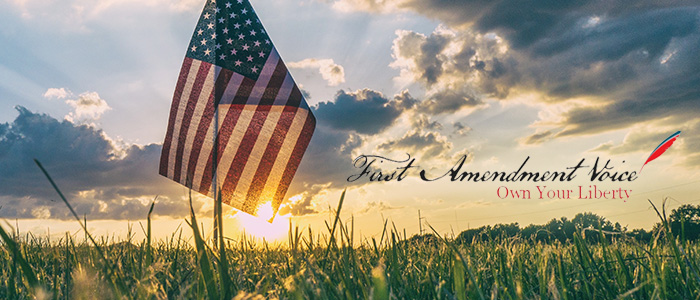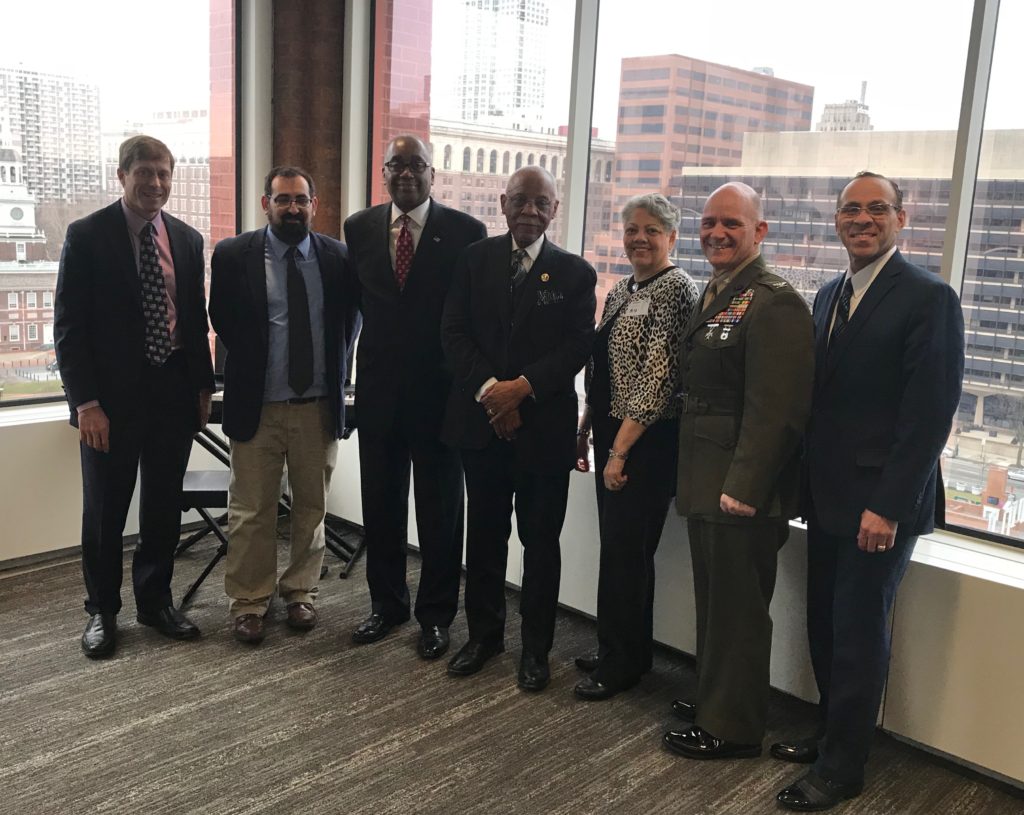
by Dan | Mar 28, 2018 | Uncategorized
 Free speech on college campuses is already a heated topic of discussion, but what about freedom of speech for teachers and professors at all levels of education? Should they be limited from exercising their First Amendment freedoms because they might influence their students’ world views? Here are some factors to consider:
Free speech on college campuses is already a heated topic of discussion, but what about freedom of speech for teachers and professors at all levels of education? Should they be limited from exercising their First Amendment freedoms because they might influence their students’ world views? Here are some factors to consider:
Public Versus Private Schools
One of the first considerations to make when it comes to teachers’ free speech in classrooms is whether the institution they teach at is public or private. Public schools and colleges have different regulations about freedom of speech (for students and instructors) compared with private schools, but should this make a difference? For instance, a privately funded religious university might object to one of their professors expressing anti-religious sentiments and subsequently fire them. This has happened several times over the last few decades, but the question still lingers: should the public/private status of a school or college dictate whether instructors are free to exercise their First Amendment rights?
Ideological Influence in Lectures
Free speech affects teachers of all academic subject areas. For instance, an adjunct science professor from San Jose City College lost her job in 2007 after students complained her lectures suggested that homosexuality results from nurture, rather than nature. When she sued the college, the judge stated in the ruling, “the precise contours of the First Amendment’s application in the context of a college professor’s instructional speech are ill-defined and are not easily determined.” The judge further argued that college professors could be punished if the college acted upon “legitimate pedagogical concerns.”
The issue of free speech for teachers and professors in the classroom remains highly contested in all levels of our nation’s legal system. Educators’ speech and expression has been limited by college policies and rejected in some cases, so we must ask ourselves: should instructors be prohibited from fully expressing their First Amendment freedoms to prevent their students from being ideologically influenced in the classroom?
Teachers’ Speech Outside of the Classroom
What if a teacher/professor utilizes their freedom of speech outside of the classroom (e.g., on social media) in a way that brings negative publicity to the educational institution they teach at? In 2017, several adjunct professors were fired for anti-Trump social media posts, which they had posted from their own personal profiles. Adjunct professors are in a particularly vulnerable position because they have no job stability (they can be offered 5 classes one semester and 0 the next semester, with no justification from the college required).
Other teachers with contracted jobs have also been fired for comments or social posts made outside of the classroom, but the question remains: Were they acting within their First Amendment rights, or did they overstep their ethical positions as educators by posting controversial material online?

by Dan | Mar 14, 2018 | Uncategorized
 On February 5, Representative Eric Swalwell introduced the Journalist Protection Act. This new bill proposal is designed to protect journalists’ efforts to investigate and report newsworthy events, which has become increasingly dangerous over the past couple of years, in both the U.S. and abroad. Since freedom of the press is a vital component of our First Amendment freedoms and the very fabric of our country’s democratic foundations, it’s important to understand how this act might change our highly polarized environment for the better.
On February 5, Representative Eric Swalwell introduced the Journalist Protection Act. This new bill proposal is designed to protect journalists’ efforts to investigate and report newsworthy events, which has become increasingly dangerous over the past couple of years, in both the U.S. and abroad. Since freedom of the press is a vital component of our First Amendment freedoms and the very fabric of our country’s democratic foundations, it’s important to understand how this act might change our highly polarized environment for the better.
According to Swalwell’s website, the Journalist Protection Act “makes it a federal crime to intentionally cause bodily injury to a journalist affecting interstate or foreign commerce in the course of reporting or in a manner designed to intimidate him or her from news gathering for a media organization. It represents a clear statement that assaults against people engaged in reporting is unacceptable, and helps ensure law enforcement is able to punish those who interfere with news gathering.”
This act is designed to prevent attacks on journalists in the course of their reporting and news gathering duties, which is inherent in the First Amendment but less protected in practice. It is currently supported by the Communications Workers of America (CWA) and the News Media for Open Government organization.
Although journalists are rarely killed in the U.S., many have been harassed or outright attacked while trying to gather information for their respective publications. As Bernie Lunzer, president of The NewsGuild, stated:
“This is a dangerous time to be a journalist. At least 44 reporters were physically attacked in the U.S. last year and angry rhetoric that demonizes reporters persists. The threatening atmosphere is palpable. The Journalist Protection Act deserves the support of everyone who believes our democracy depends on a free and vibrant press.”
Some attacks may have been politically motivated – one congressional candidate even body-slammed a reporter – but there’s no single cause for the increasing rates of harassment and violence against journalists. Some argue that President Trump’s anti-media rhetoric could be the cause, while others claim journalists are getting too nosy and should back off intensive investigations. Regardless of the causes, one thing remains clear: we need to protect our journalists to ensure our First Amendment press freedoms remain unobstructed.
Will the Journalist Protection Act solve all of our problems related to freedom of the press these days? Of course not, but it might be a good solution to prevent more reporters from facing serious harassment and even violence in their news gathering duties. As we’ve seen in other countries with even fewer protections for journalists, corruption, violence and even murder become prevalent when the rights of reporters are disregarded. Ultimately, if we want our free press to remain truly free, we need to protect those who are in charge of uncovering stories and getting the details we need to be informed citizens.

by Dan | Mar 8, 2018 | Latest News, Newsletter
FAV Family,

Photo Credit: Dr. Malcolm Byrd, American Bible Society In the photo from right to left: Dr. Paul Murray, Colonel John Church, President of Valley Forge Military Academy & College, Annie Brown, the Honorable Wilson Goode, Jr, former Mayor of Philadelphia, Dr. Fred Lester, Men’s Empowerment Network, Joe Cohn, Legislative Director, FIRE, and Steve Miska, Director, First Amendment Voice
Dr. Murray and I had the supreme honor of meeting with stakeholders in the Philadelphia area to discuss the FAV direction for the upcoming National Symposium in September. People in the meeting provided constructive input into the programming that would most resonate with respect to freedoms of religion, speech, press and civic challenges today. We are excited to invite you to join us on September 14th and 15th to celebrate Constitution Day and Citizenship Day and help rekindle understanding around first amendment issues.
Following our Round Table discussion, I had the distinct honor of addressing the Corps of Cadets at Valley Forge Military Academy & College. I spoke about Character as it relates to First Amendment Freedoms. The cadets asked insightful questions and instigated a meaningful exchange around important issues that many in the crowd would soon swear an oath to defend. Serving something greater than yourself is one of the most meaningful ways to live out life, whether that service is through your faith, your service to country in uniform, through the Peace Corps, or some other way. There are many ways to serve, but like citizenship, service is not a spectator sport! You need to get in the game and enjoy the rewards.
Please forward this newsletter to friends and colleagues you think would appreciate FAV’s work. Subscribe here.
Yours in Service,
Steven M. Miska
Director, First Amendment Voice
 First Amendment Voice awarded PEN America Grant to promote press freedom
First Amendment Voice awarded PEN America Grant to promote press freedom
Thanks to the support of PEN America, FAV will host Coffee Talks in local areas to discuss threats to First Amendment issues and empower citizens to learn and advocate for protection of their freedom. Coffee shop talks will help consumers be more critical and think about the reliability of their news sources by learning about different perspectives. Two Coffee Talks will be held in Southern California in the next month to raise awareness of press freedom. Dates, times, and locations to be announced.
Upcoming Events in 1A Space
The Religious Freedom Center of the Newseum Institute invites you to attend our March webinar, Islam and America: Tips for Sharing Scholarship with the Public. We will discuss how scholars of Islam and American public life can engage different publics to raise the visibility of their work. We are pleased to host co-presenters Dalia Mogahed, Najeeba Syeed, and Asma Uddin. The webinar will include a presentation and extended Q&A. Sign up today!
Event Details: March 14, 2018: 12 – 1 p.m. EST
In the News
Discussion with those whom you disagree. The first paragraph gives you a sense for where this piece goes. I hope you take the time to read it.
Disagreement has made disagreeable individuals of us all. News channels are littered with platitudes masquerading as thoughtful discussions. Individuals, convinced that the volume of their speech corresponds to the correctness of their arguments, contribute to the cacophony of tirades. The print media publish headlines assassinating opponents’ characters rather than their ideas.
Free speech and toleration: A family exercising free speech stir controversy within their community.

by Dan | Mar 5, 2018 | Uncategorized
 There is much debate over what is and isn’t protected under the First Amendment, but the issue becomes even murkier when you apply constitutional rights in an online context. Should the First Amendment regulate online speech or just leave it alone? Here are three relevant considerations to make:
There is much debate over what is and isn’t protected under the First Amendment, but the issue becomes even murkier when you apply constitutional rights in an online context. Should the First Amendment regulate online speech or just leave it alone? Here are three relevant considerations to make:
Problems with Algorithms
Commentators, politicians and others criticize the major platforms such as YouTube, Twitter and Facebook about their computer algorithms not doing enough to regulate appropriate content. While unregulated algorithms may seem like a good thing from the perspective of protecting universal free speech, this has led to some troubling incidents recently. For example, YouTube star Logan Paul’s infamous video of him laughing at a corpse in Japan’s suicide forest was available to audiences for a long time before it was removed. Additionally, a phenomenon known as “Elsagate” has become increasingly concerning, as young children are encouraged to click on videos with familiar cartoon characters, only to be presented with incredibly inappropriate videos after a few seconds’ introduction. On Facebook, algorithms are still struggling to parse out “fake news” from legitimate news, which has led to incidents like “Pizzagate,” in which a gun-toting man open fired on a pizzeria in Washington D.C. after believing a false online news report. Since there are real consequences to these expressions of speech online, there should probably be more improvements conducted on algorithms that regulate content for viewers of all ages. The tech firms say they are attempting to reign in inappropriate content. Others argue that society must be the ultimate arbiter of acceptable content and not rely on the tech firms to solve the problem.
Cyberbullying Dilemmas
Does the First Amendment protect those who harass, bully or anonymously send death threats to other people online? Offline, bullying is a serious issue, but the anonymity of online profiles has created a situation where accountability concerns are left in a moral gray area and protections for victims of cyberbullying are less stringent than those implemented in academic and professional environments.
Since cyberbullying is unlikely to go away anytime soon and has led to real consequences (higher rates of young adults feeling depressed or anxious, for instance), then perhaps we should rethink how we protect harmful speech written or spoken online. How can we as a civil society stop people from harassing others if they’re anonymous? Maybe a little transparency could help?
Political Disclosures
Finally, what can we do about political advertising that is paid for by foreign entities? Slate produced a great article on this subject, which discussed a new piece of legislation called the Honest Ads Act. If implemented, the Honest Ads Act would require large platforms like Twitter and Google to publicize the people and groups that purchased ads ($500 or more) for political elections. The act has not been debated or passed yet, but it could be a good remedy for preventing foreign influence in our country’s elections.
Follow FAV on social media or go to our website and let us know what you think. Joining the discussion is a great way to exercise your citizenship.

by Dan | Feb 14, 2018 | Uncategorized
 The Founding Fathers probably never saw this coming: A digital era in which humans aren’t the only ones communicating. Set aside your fears of a robot-dominated dystopia for a moment and think about this: Robots and artificial intelligence are increasingly present in online conversations and media, which means free speech considerations are starting to crop up.
The Founding Fathers probably never saw this coming: A digital era in which humans aren’t the only ones communicating. Set aside your fears of a robot-dominated dystopia for a moment and think about this: Robots and artificial intelligence are increasingly present in online conversations and media, which means free speech considerations are starting to crop up.
What does this mean for us? As a recent Slate article argued, now is the best time to start thinking about how we protect (or restrict) speech produced by robots. If we don’t, then our fundamental First Amendment freedoms could be at stake as we interact more online. How do you think we should apply the First Amendment to robotic speech (if at all)? Here are some things we need to critically evaluate in the coming years:
The First Amendment Doesn’t Specify Humans
Although it may seem obvious that the Constitution was written by people, for people, this doesn’t necessarily mean the protections within our country’s legal framework are exclusively limited to humans. Other legal challenges in the U.S. – such as the debate over legal personhood for chimps and apes – and abroad – such as Saudi Arabia granting citizenship to a humanlike robot in 2017 – demonstrate how our modern society is changing its attitudes towards nonhuman beings in our global society.
Should the First Amendment only apply to humans? If the government is forbidden from “abridging the freedom of speech,” then could speech produced by robots and AI be protected as well? A literal reading of the Constitution suggests this might be the case, but it’s ultimately up to citizens and policymakers to decide.
Fundamental Freedoms Are at Stake
A major concern about free speech for robots doesn’t even involve robots – it involves universal protections for fundamental freedoms like speech and expression. If you look at FIRE’s history of free speech records, you’ll find several instances throughout English and American history when the First Amendment was violated for arbitrary reasons, such as Union Army General Ambrose Burnside’s suspension of the Chicago Times in 1893, the 1918 Sedition Act that prevented spoken or written criticism of the U.S. government, and the 1938 ban on Life Magazine after the media organization produced a public health documentary on childbirth.
In the present-day context, First Amendment right violations occur on a regular basis, from school dress codes primarily targeting female students to the suppression of freedom of speech on college campuses. By ignoring the growing issue of robots and free speech, we could be fracturing the universality of free speech protections. Even if we do not give robots and related technologies the right to freedom of expression, we still need to figure out what to do about this matter during a time when thousands of bots are posing as real human beings in online interactions.
Regulating Robots’ Speech is Nearly Impossible
Whether you believe robotic speech derives from human programmers or it comes from robots themselves, the fact of the matter is: regulating bots online would be next to impossible to enforce. There are millions (if not billions) of bots on social media websites, and we do not have the regulatory framework or government funding needed to regulate all instances of robotic speech.
Additionally, how would regulating robotic speech even work? We will never be able to eliminate bots entirely from the Internet, imposing fines wouldn’t work because that would require a human to be directly involved and held accountable, and since bots are mostly anonymous, how could we determine if the bot is programmed by a human or running autonomously?
Ultimately, there’s no clear solution for regulating robotic speech under the First Amendment. It could be that only human beings deserve rights under the law, but it could also be that robots are too widespread online to bother with regulating them (our government simply doesn’t have the billions of dollars needed to do this). So what do you think? Should we restrict robotic speech or grant it protection under the First Amendment?

 Free speech on college campuses is already a heated topic of discussion, but what about freedom of speech for teachers and professors at all levels of education? Should they be limited from exercising their First Amendment freedoms because they might influence their students’ world views? Here are some factors to consider:
Free speech on college campuses is already a heated topic of discussion, but what about freedom of speech for teachers and professors at all levels of education? Should they be limited from exercising their First Amendment freedoms because they might influence their students’ world views? Here are some factors to consider:

 On February 5, Representative Eric Swalwell introduced the
On February 5, Representative Eric Swalwell introduced the 

 First Amendment Voice awarded PEN America Grant to promote press freedom
First Amendment Voice awarded PEN America Grant to promote press freedom
 There is much debate over what is and isn’t protected under the First Amendment, but the issue becomes even murkier when you apply constitutional rights in an online context. Should the First Amendment regulate online speech or just leave it alone? Here are three relevant considerations to make:
There is much debate over what is and isn’t protected under the First Amendment, but the issue becomes even murkier when you apply constitutional rights in an online context. Should the First Amendment regulate online speech or just leave it alone? Here are three relevant considerations to make:
 The Founding Fathers probably never saw this coming: A digital era in which humans aren’t the only ones communicating. Set aside your fears of a robot-dominated dystopia for a moment and think about this: Robots and artificial intelligence are increasingly present in online conversations and media, which means free speech considerations are starting to crop up.
The Founding Fathers probably never saw this coming: A digital era in which humans aren’t the only ones communicating. Set aside your fears of a robot-dominated dystopia for a moment and think about this: Robots and artificial intelligence are increasingly present in online conversations and media, which means free speech considerations are starting to crop up.



